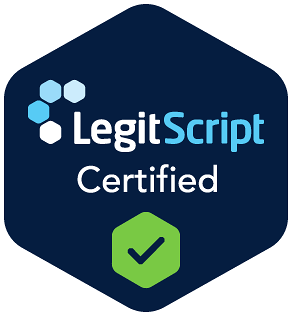When facing addiction, finding the right treatment plan can make all the difference in achieving lasting recovery. Medication-Assisted Treatment (MAT) is one of the most effective tools available today, combining FDA-approved medications with therapy to help individuals manage cravings, withdrawal symptoms, and the psychological aspects of addiction.
In this article, we’ll answer an important question: What medication is used for drug addiction? We’ll also explain how Colorado Medication-Assisted Recovery (CMAR) provides personalized outpatient programs to support safe and successful recovery.
Understanding Medication-Assisted Treatment (MAT)
Before diving into the specific medications, it’s essential to understand what Medication-Assisted Treatment (MAT) is.
Medication-Assisted Treatment involves the use of medications, alongside counseling and behavioral therapies, to treat substance use disorders.
The goal of MAT is to:
- Reduce withdrawal symptoms
- Decrease cravings
- Block the euphoric effects of drugs
- Support long-term recovery
At CMAR, we integrate MAT into our outpatient detox, IOP, and PHP programs to offer a full continuum of care for individuals struggling with opioid, alcohol, and other addictions.

What Medication Is Used for Drug Addiction?
Several medications are commonly used to treat drug and alcohol addiction. Each medication works differently depending on the substance being treated:
1. Suboxone (Buprenorphine/Naloxone)
Suboxone is one of the most widely prescribed medications for opioid addiction.
It combines buprenorphine (a partial opioid agonist that reduces cravings and withdrawal) with naloxone (an opioid antagonist that blocks the effects of opioids).
Benefits of Suboxone:
- Reduces cravings
- Minimizes withdrawal symptoms
- Lowers the risk of overdose
- Allows for outpatient detox and recovery
At CMAR, Suboxone is a cornerstone of our opioid MAT programs.
2. Sublocade (Extended-Release Buprenorphine)
Sublocade is a once-monthly injection that delivers a steady dose of buprenorphine over time.
It’s ideal for individuals seeking a long-term solution to opioid cravings without the need for daily medication.
Benefits of Sublocade:
- Reduces risk of missed doses
- Provides consistent symptom control
- Supports long-term sobriety
Sublocade is available at CMAR as part of our outpatient MAT services.
3. Vivitrol (Naltrexone)
Vivitrol is an extended-release injection used for both opioid and alcohol addiction.
It works by blocking opioid receptors in the brain, preventing the euphoric effects of drugs and alcohol.
Benefits of Vivitrol:
- Prevents relapse
- Requires only one injection per month
- Non-addictive, with no withdrawal symptoms when discontinued
Vivitrol is an excellent option for clients who have already completed detox and are focused on maintaining sobriety.
4. Subutex (Buprenorphine)
Subutex contains buprenorphine alone, without naloxone.
It is sometimes used in the early stages of treatment for opioid use disorder before transitioning to Suboxone or Sublocade.
Benefits of Subutex:
- Eases early opioid withdrawal
- Reduces cravings during initial detox
- Supports stabilization before transitioning to maintenance therapy
5. Antabuse (Disulfiram)
Antabuse is used for alcohol addiction.
It works by causing unpleasant physical reactions, such as nausea, vomiting, and rapid heartbeat, if alcohol is consumed, discouraging drinking.
Benefits of Antabuse:
- Strong deterrent against alcohol use
- Supports accountability during recovery
- Helps reinforce abstinence behaviors
Antabuse can be part of a broader relapse prevention plan at CMAR.

How CMAR Customizes MAT for Each Patient
At Colorado Medication Assisted Recovery, there’s no one-size-fits-all approach to MAT.
After a thorough clinical assessment, our team customizes a treatment plan based on:
- Type of substance use disorder
- Severity of withdrawal symptoms
- Co-occurring mental health conditions
- Patient preferences and lifestyle needs
We offer outpatient detox, MAT-based IOP, and PHP programs with flexible scheduling and telehealth options.
Patients receive not only medication management but also counseling, therapy, and mental health support to address the root causes of addiction.
Whether you need support for opioid addiction, alcohol use disorder, or dual diagnosis treatment, CMAR’s comprehensive outpatient programs are built to help you succeed.

The Benefits of Medication for Drug Addiction
Using medication as part of addiction treatment provides essential advantages:
- Reduced Cravings and Withdrawal: Making it easier to focus on therapy and healing.
- Lower Risk of Overdose: Especially critical for opioid use disorder.
- Improved Treatment Retention: MAT keeps patients engaged in recovery programs longer.
- Stabilization for Mental Health Treatment: Allowing co-occurring conditions like anxiety or depression to be effectively addressed.
- Greater Long-Term Success Rates: Patients who receive medication-assisted treatment (MAT) have significantly better recovery outcomes compared to those who do not.
If you’re wondering what medication is used for drug addiction, know that professional outpatient programs like CMAR combine medical expertise, compassionate care, and individualized plans to give you the best chance at long-term recovery.
Start Your Recovery Journey Today
The journey to sobriety doesn’t have to be overwhelming.
At Colorado Medication-Assisted Recovery, we provide expert outpatient detox, medication-assisted treatment (MAT), and therapy services to help you reclaim your health, freedom, and future.
If you’re ready to explore what medication is used for drug addiction and how it can help you or a loved one, contact CMAR today to verify your insurance and schedule a confidential assessment.





